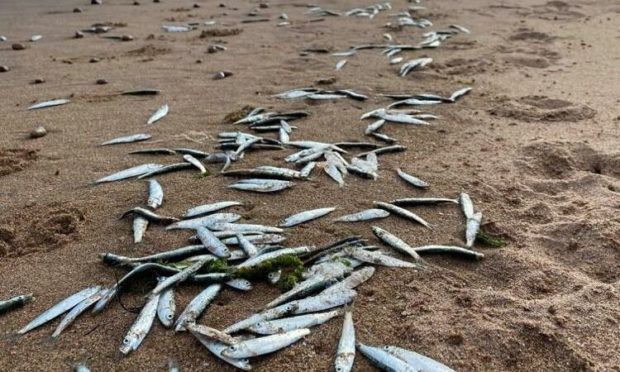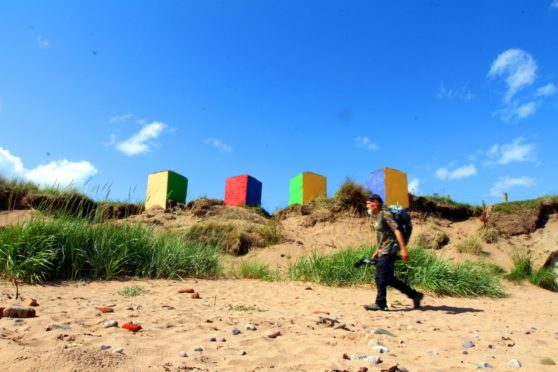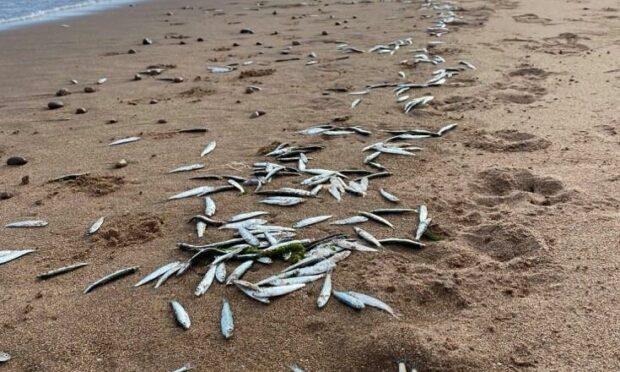Hundreds of dead fish have washed up on an Angus beach, strewn across the shoreline.
The “fish wreck” at Elliot Beach in Arbroath caused confusion and upset for walkers over the weekend.
Marine experts say storms and high winds can often kill fish, which are then washed up on to the shore.
A spokeswoman for the Marine Conservation Society UK said it is likely the mass deaths were the result of bad weather, such as high winds.
She said: “Marine experts believe that it’s likely, though distressing, this is a result of some inclement weather.
“These kind of images are quite common after strong onshore winds and storms.
“While it’s difficult to absolutely rule out a discard it’s very likely a natural, but unfortunate, fish wreck.”
Although relatively common, the fish washed up in Arbroath is the only instance in the UK the society has been aware of this week.
The spokeswoman added: “More commonly strandings like this are likely to be jellyfish but other types of fish can also be washed up and killed by very strong weather and rough seas.”
Why does bad weather kill fish?
Freshwater Fisheries research says overcast weather causes algae and water plants to slow oxygen production during the day.
But as plants continue to take oxygen from water at night, this means oxygen levels become too low for fish to survive.
When has this happened before?
In March 2018, 25 dead octopus washed up on a 300-metre stretch of beach at East Haven in Angus.
A few days later, walkers on the West Sands in St Andrews reported dozens of dead cuttlefish, lobsters and crabs.
At the time this was blamed on the aftermath of Beast from the East, a polar vortex that brought freezing temperatures and high onshore wind gusts to the UK.


